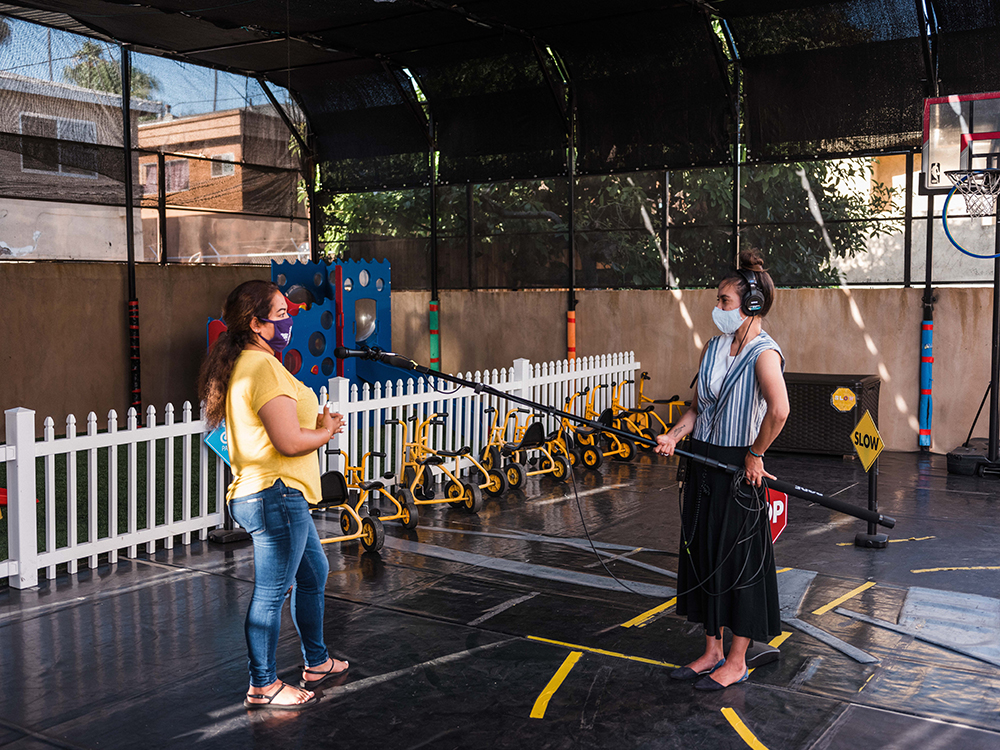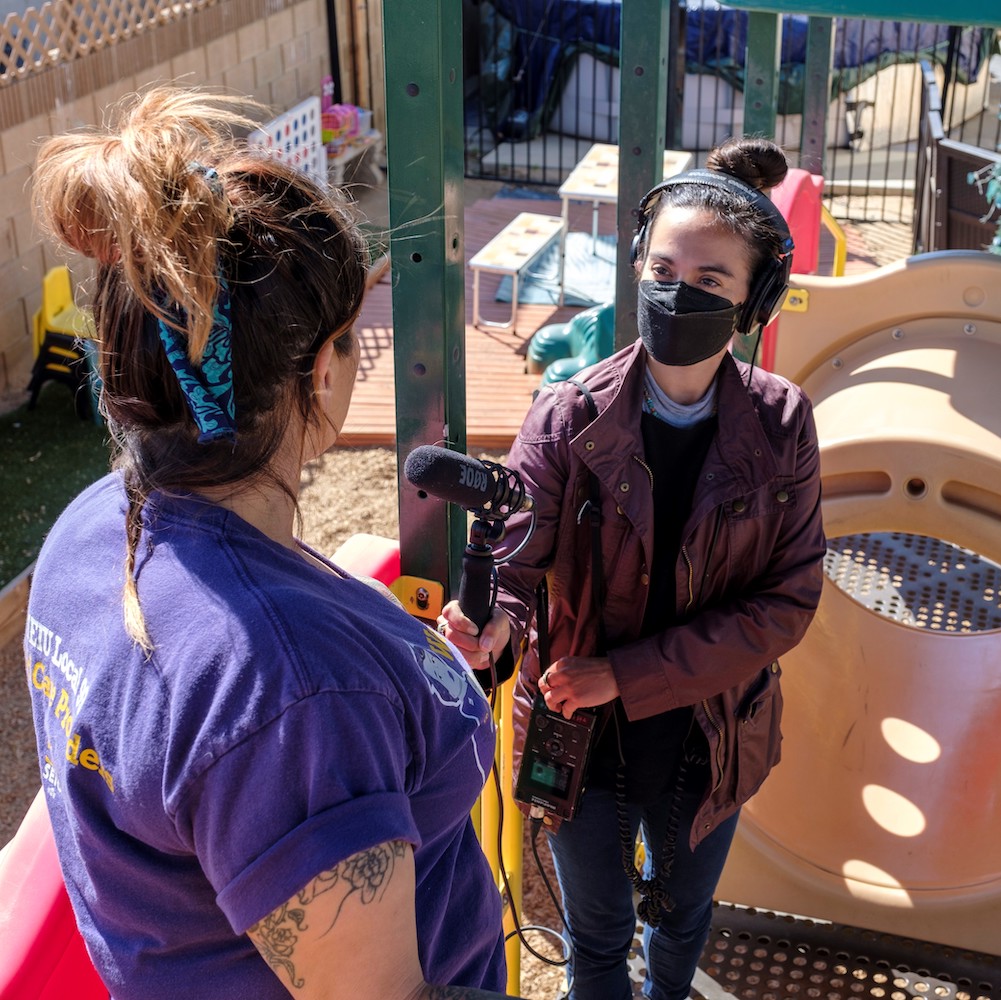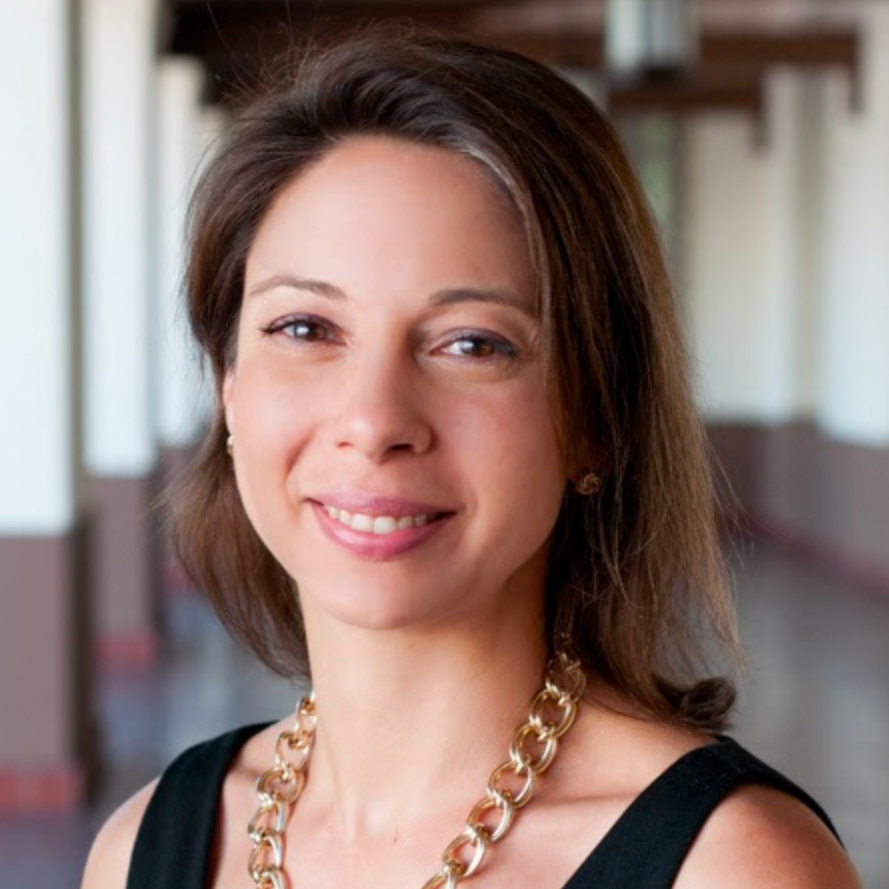March 28, 2023
Mariana Dale explores and explains the forces that shape the lives of kids prenatal to age 5 and their families, from mom’s health to kindergarten and just about everything in between.
The occasional playground visits are just one perk of the job.
She moved to Southern California after a lifetime in Arizona where, among other things, she reported on the state’s 2018 teacher strike, saguaro cactus, and questions from people like you.
She hopes the stories we tell together reflect the experiences of caregivers, educators and kids from all walks of life, highlighting the challenges and triumphs of early childhood.
Every interview is an opportunity to learn more about L.A. through its people and — when she’s not on deadline — an excuse to scout out tasty food.
What drew you to the early childhood beat?
I believe deeply in the power of journalism. Stories can help people navigate their lives, shine a light on challenges and successes and little by little bring meaningful change to our world.
For as long as I’ve been a journalist, I’ve been drawn to stories about how we learn and grow, so covering early childhood feels like a natural extension of that curiosity.
I’d also long followed LAist (formerly KPCC)’s work and admired their deep collaboration with the community, whether it was answering people’s questions about child care or highlighting grassroots changemakers working to save the lives of Black babies.

Credit: Chava Sanchez
From your perspective, how has media coverage of pregnancy, young children and child care changed over time?
While researching a story about the inherent inequities in our early childhood system in 2020, I read a 1976 Los Angeles Times article that starts: “Child care in California is, for the most part, in a state of confusion. It is a maze of expensive research studies, complexities of funding, bureaucratic squabbling and conflict with parent groups. Underscoring all is an overwhelming need for child care services.”
My first thought was similar to that of Lea Austin, executive director of the Center for the Study of Child Care Employment at UC Berkeley.
“This absolutely could have been written today,” she told me.
That we face these same challenges today is frustrating. Even more so [in] the midst of a pandemic that highlighted just how essential the people who care for children are, whether they’re formal providers or family.
At the same time, I do think there’s a growing understanding of how vital the early years are to the rest of a child’s life and the support needed to help all children grow and thrive.
What do you hope changes about the coverage of “women’s issues” and early childhood development in the future?
I hope stories about early childhood become more nuanced and intersectional.
Every major issue, from housing to climate change, touches the lives of young children and their families. Some of our deepest inequities are rooted in challenges that families face during pregnancy and early childhood, whether it’s the high rate of Black maternal deaths or the disproportionate discipline of Black preschoolers.
Reporting needs to unpack and examine wide-sweeping policy changes, such as the creation of universal preschool. We can help make important information accessible, whether it’s how to find a doula or take family leave. The stories we tell together can also show the power of grassroots changemakers — like the kindergarten teacher who sent students care packages during the pandemic, the Black midwives that opened a birthing center in South Los Angeles, and the child care provider mentoring the next generation of early educators.
“While policy is important,” writes reproductive justice advocate Raena Granberry, “we have to understand that we can take care of ourselves. The community has the solutions.”
Recent stories:









